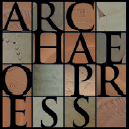
Publishing Scholarly Archaeology since 1997

Download Sample PDF
H 245 x W 174 mm
264 pages
17 figures, 2 tables (colour throughout)
Published Aug 2025
ISBN
Paperback: 9781805830061
Digital: 9781805830078
Keywords
Archaeology; Heritage; Harassment; Activism; Social Media; #MeToo; Discrimination; Bullying
Related titles




Documenting Activism, Creating Change
Archaeology and the Legacy of #MeToo
Edited by Hannah Cobb, Kayt Hawkins
This volume documents feminist, intersectional activism in archaeology since 2010, highlighting online and transient spaces. It captures insights from 43 archaeologists, documenting positive changes and providing a resource for ongoing advocacy against gendered inequalities and violence.
Contents
Author Biographies
Definitions
Organisations, Groups, Social Media Communities, Hashtags and Abbreviations Mentioned in This Book
Acknowledgements
Section 1. Setting the Scene: Documenting Activism, Creating Change
Chapter 1. Documenting Activism and Creating Change: Why Here? Why Now? Introduction to the Volume – Hannah Cobb and Kayt Hawkins
Chapter 2. Archaeologists, Activists, and Angry Trolls: Using Social Media for Digital Activism in Archaeology – Alex Fitzpatrick
Chapter 3. ‘Illustrating’ the Voices of Female Archaeologists – Rita Pedro
Section 2. Raising Awareness: Highlighting Harassment
Chapter 4. From the Balkans to the Rest of Europe and Beyond: Raising Awareness about Harassment, Assault, Bullying, and Intimidation (HABI) in European Archaeology – Laura Coltofean and Bisserka Gaydarska
Chapter 5. Serbian Archaeology and the Rise of the Awareness of Sexual Assault – Radmila Balaban, Monika Milosavljević and Tanja Ignjatović
Chapter 6. The Role of Small Groups in Big Issues. The Work of the Archaeology and Gender in Europe Community in the European Association of Archaeologists – Bisserka Gaydarska and Laura Coltofean
Chapter 7. #everyDIGsexism and Everything After – Hannah Cobb
Chapter 8. A Peruvian Feminist Archaeology? An Initial Assessment – Carito Tavera Medina
Chapter 9. Turkish Archaeology and Activism – Yağmur Heffron and Elif Koparal
Section 3. Online Activism: Creating Communities, Challenging Norms, Driving Change
Chapter 10. Forging Online Queer Activist Communities in a Time of Social Media Disintegration – Nathan Klembara
Chapter 11. Feminist Resistance in Archaeology: The Cases of France and Belgium – Laura Mary, Béline Pasquini and Ségolène Vandevelde
Chapter 12. Acting Against Sexual Harassment in UK Archaeology: The RESPECT Campaign – Kayt Hawkins and Cat Rees
Chapter 13. #ExcavationInProgress: Insights and Experiences of Sexism and Sexual Harassment from the Archaeological Sector in ‘Gender Equal’ Sweden – Liv Nilsson Stutz, Petra Aldén Rudd and Ingrid Berg
Chapter 14. Mentoring: Women in Archaeology and Heritage. The Positive Power of Social Media within Women’s and LGBTQIA+ Spaces – Ruth Humphreys, Amy Talbot, Rosie Loftus, Alex Grassam
Chapter 15. TrowelBlazers as a Noun and a Verb: Online Activism through Sharing Histories of Women in Archaeology – Brenna Hassett, Rebecca Wragg Sykes, Suzanne Pilaar Birch, Victoria Herridge
Section 4. Activism in the Workplace: Disrupting Structures of Discrimination
Chapter 16. Future Challenges for the Prevention of Sexual Harassment in Spanish Archaeology – María Coto-Sarmiento, Ana Pastor Pérez, María Yubero Gómez, Paloma Zarzuela Gutiérrez
Chapter 17. Union Activism and #MeToo in UK Contracting Archaeology – Jessica Bryan, Penelope Foreman, Isobel Phillips and Sadie Watson
Chapter 18. Making a Difference Together: Unionism, Archaeology and Change Over Time – Megan Schlanker and Jane Evans
Chapter 19. In Pursuit of Systemic Equality: The UK’s First Network for Ethnically Diverse Staff in Development-led Archaeology – Shantol Campbell, Veronica Abadie, Rosanna Volpe, Sara Perry
Section 5. Commentary and Conclusion
Chapter 20. Strategies and Tactics for Addressing Interpersonal Abuses of Power in Archaeology: A Commentary on Documenting Activism, Creating Change: Archaeology and the Legacy of #MeToo – Barbara L. Voss
About the Author
Hannah Cobb is a Professor of Archaeology and Pedagogy. She has led numerous EDI initiatives including #everyDIGsexism and the CIfA Equality and Diversity Group (2015- 2022). She has published extensively on teaching and learning in archaeology, including "Assembling Archaeology: Teaching, Practice and Research" (OUP, 2020) and the textbook "Archaeology: An Introduction" (6th ed, 2024). Through her teaching, research and leadership she passionately advocates for inclusion, equity and diversity in the past, present and future.
Kayt Hawkins is an archaeologist with over 25 years experience working and publishing within UK developer-led archaeology. A founder member of the RESPECT campaign, she regularly engages with, and advises on, EDI initiatives, such as the CIfA Qualitative Inequalities Research. Kayt is also a Deputy Commissioner (England) for the Archaeo-Sexism exhibition, having secured funding for the exhibition in the UK, and has co-organised sessions at both UK and European conferences on the prevention of harassment.

 Add to wishlist
Add to wishlist
